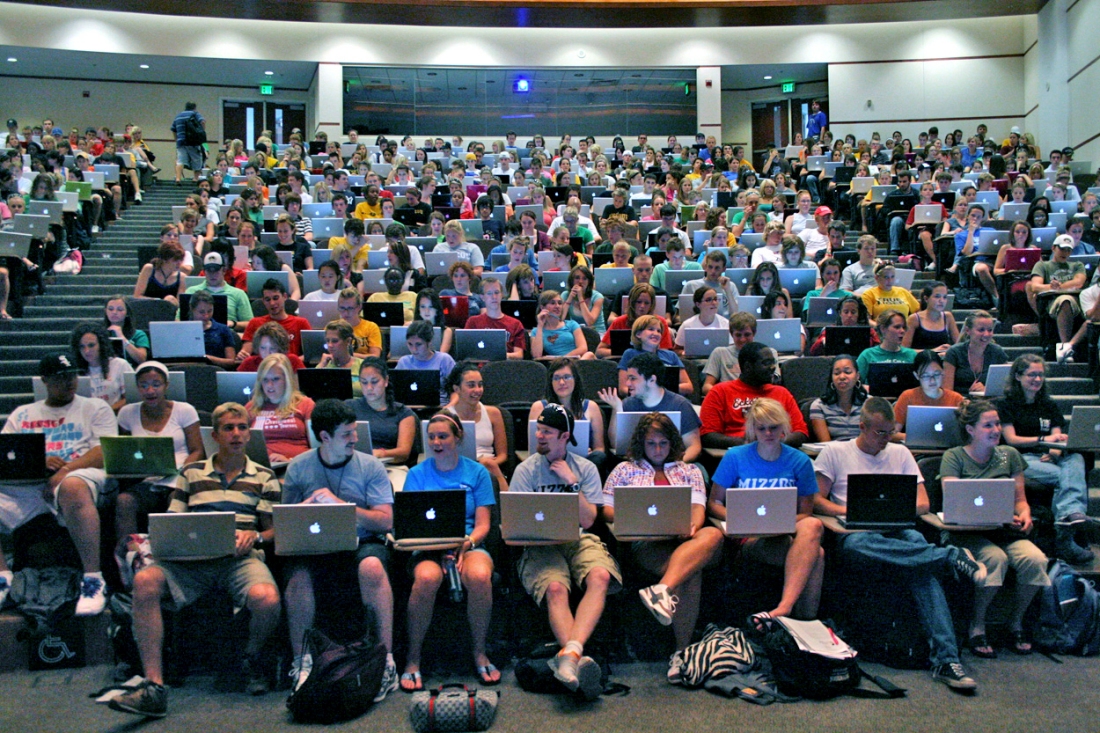
Laptops are practically a necessity for college students, serving as invaluable teaching tools that assist with tasks like writing reports, taking notes in class and participating in online quizzes. They can also serve as a major distraction both for the user and those around them.
Susan Dynarski, a professor of education, public policy and economics at the University of Michigan, has banned laptops and other electronics in her classroom and at research seminars. Dynarski cites growing evidence suggesting college students learn less when using a laptop or tablet during a lecture. What’s more, tech users tend to earn worse grades.
Of course, proving that is somewhat problematic due to something called selection bias. You see, not all students use laptops the same way. A distracted student may turn to their computer when they are bored or otherwise disinterested in the lecture material while a dedicated student could lean more heavily on their laptop to take notes, look up related concepts on the fly and so on.

Students participating in a study at Princeton University and the University of California, Los Angeles, were randomly assigned either a laptop or pen and paper for note-taking purposes. Those who took notes on the laptop had a substantially worse understanding of lecture material compared to those that used pen and paper to jot down notes.
Researchers believe that, because students can type faster than they can write, the flow of information goes directly from the lecturer to the students’ typing fingers without really stopping to be processed by the brain. Those with pen and paper had to think about the material and condense it down in order to keep up. As a result, they had a better understanding of the material when it came time to take a standardized test.
Another study evaluated the impact of laptop use on students that weren’t using them (but were in the vicinity of someone that was). What they found is that the laptop could serve as a form of “visual pollution” by distracting nearby students and impacting their learning.
More studies are probably needed before drawing any firm conclusions but the information on the table thus far is fascinating and goes against the general notion that technology in the classroom is always a good thing.
Lead image via Brett Jordan, Flickr
https://www.techspot.com/news/72053-technology-classroom-isnt-always-good-thing.html